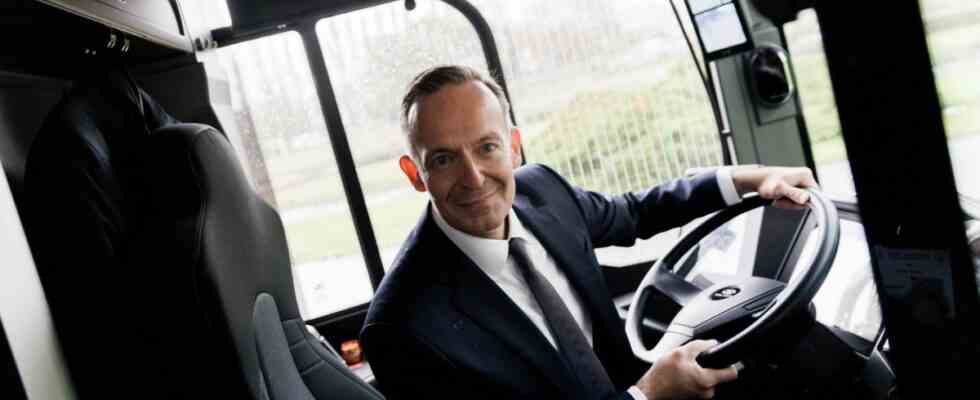Until a few days ago, Volker Wissing was optimistic about his prestige project. The start date of the nationwide 49-euro ticket, which was actually planned for the beginning of the year, which has been postponed several times, is now finally fixed, the Federal Minister of Transport, who was involved, made clear ten days ago at the exam of the FDP parliamentary group in Bavaria. It is clear to him that the ticket will not come later than May 1st, said Wissing.
What sounded like a word of power only lasted a good week. Because this weekend, Bremen’s mobility senator Maike Schaefer (Greens) made a completely different forecast public. The start on May 1st is in acute danger, she warned. If the negotiations continue to be so sluggish, she sees it as black, said Schaefer, and made it clear who she believes to be responsible: “A federal minister who does not block implementation” is needed for a timely start.
“It’s not up to us states,” says Baden-Württemberg’s Green Minister of Transport, Winfried Hermann
After a meeting between Chancellor Olaf Scholz (SPD) and the Prime Minister in December, the months-long dispute over the ticket actually seemed to have been settled. But now he breaks out again with full force. “It’s not up to us states that the 49-euro ticket is delayed,” says Baden-Württemberg’s green transport minister, Winfried Hermann Süddeutsche Zeitung. One is “surprised that the Federal Transport Minister is not making any progress with the preparations”. After all, he himself wanted to introduce the ticket at the turn of the year.
The dispute escalated again with a working meeting between the federal and state governments on Friday. To the annoyance of the federal states, according to SZ information, federal representatives are said to have come to the meeting without authority despite the high time pressure. Decisions were not prepared and new problems were raised, it was said after the meeting. For example, the Federal Ministry of Transport did not want to accept the urgent request of several federal states to temporarily allow paper versions of the tickets, which were actually planned to be digital, for older people for a year. It is also unclear whether the rules of the transport associations, for example for children, should also apply to the 49-euro ticket on a transitional basis.
Another point of contention is the planned data platform, with the help of which the income from the tickets should be distributed to the federal and state governments – depending on where the buyers were traveling with the tickets. Contrary to its promise to halve the total costs, the federal government does not want to participate. Wissing’s ministry also does not want to co-finance discounts for employers, which annoys the federal states.
Time is of the essence. In order to get the necessary changes to the law underway, Wissing’s ministry would probably have to present a first draft this month. This is the only way for the other ministries to have a say and for the Bundestag and Bundesrat to debate and decide in good time. After all, the sale is supposed to start on April 3rd.
There is also a dispute about the marketing costs for the billion-euro project
But the countries themselves are also at odds. Hamburg, Berlin and Brandenburg apparently do not want to contribute to the costs of nationwide marketing, which are said to be several hundred thousand euros per state for the billion-euro project. In addition, Bavaria had thwarted the previous joint state plan to offer students an upgrade from a semester ticket to a nationwide local transport ticket for an additional payment of around 20 euros. Bavaria’s Prime Minister Markus Söder had proposed as a special way to compensate for the co-payment from state funds – students would then not have to pay anything extra in Bavaria.
In the traffic light coalition there is criticism of the recent dispute. “We have to implement the transport policy projects more quickly if we want to achieve our climate policy goals,” warned SPD parliamentary group leader Detlef Müller. Ministry of Transport, federal states and transport associations should no longer “fight” over detailed questions. A ticket in paper form should also be possible temporarily, demands Müller.
In Wissing’s ministry, one sees oneself further on course. The work on the implementation of the ticket was running at full speed, said a spokeswoman. However, the ministry prefers to assign responsibility to others. States and transport companies are now responsible for the implementation of the ticket anyway.

